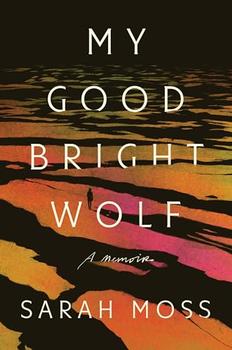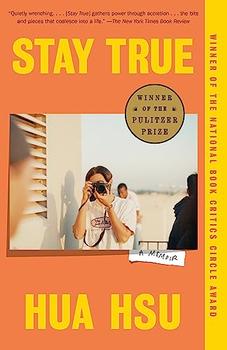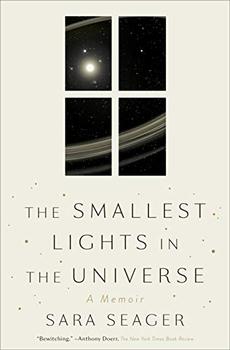Summary | Excerpt | Reviews | Beyond the book | Read-Alikes | Genres & Themes | Author Bio

A Memoir
by Sarah MossAn unflinching memoir about childhood, food, books, and our ability to see, become, and protect ourselves.
My Good Bright Wolf is a memoir about thinking and reading, eating and not eating, privilege and scarcity, the relationships that form us and the long tentacles of childhood.
Pushing at the boundaries of memoir writing, Sarah Moss investigates contested memories of a girlhood with embattled, distracted parents, loving grandparents, and teachers who said she would never learn to read. Then, by the time she was a teenager, Moss developed a dangerous and controlling relationship with food, an illness that continued to affect her as an adult, despite her professional and personal success.
In My Good Bright Wolf, this bright light of contemporary literature explores the trap of postwar puritanism and second-wave feminism, the narratives of women and food that we absorb through our childhoods and adulthoods, and the ways in which our health-care system continues to discount the experiences of women, minorities, and anyone suffering from mental illness. With her characteristic commitment to finding the truths in stories, Moss examines what she thought and still thinks, what she read and still reads, and what she did―and still does―with her hardworking body and her furiously turning mind.
power cuts
Scotland, winter.
Mid-seventies. Oil crisis, power cuts. Put another jumper on, coats indoors.
You arrived early. You would always arrive early.
Blue hands, smaller than starfish. Blue lips, crying and crying, day and night.
She wanted to feed you. She wanted to be good at it.
You were not good.
Bad at milk, bad at sleep.
Failure to thrive, failure to feed, failure to please.
You made the Jumbly Girl unhappy. You made her cry.
The Owl left in the morning and came home in the evening and she was sitting in the same chair and you were still screaming but now she was crying too.
Sarah Moss has been afflicted with the eating disorder anorexia nervosa since her pre-teen years but was able to keep the condition under some control for decades. During this period she completed a D.Phil (equivalent to an American Ph.D.) in English literature at Oxford University, became a successful professor and lecturer, and wrote several well-regarded novels (including Night Waking and Ghost Wall), among many other personal and professional achievements. As her disorder recurred, however, she found she was unable to write fiction, and so turned to setting down her experiences as a sort of therapy. Her memoir My Good Bright Wolf is the result. Moss's prose is gorgeous, bordering on poetic, and her account is both troubling and harrowing...continued
Full Review
 (816 words)
(816 words)
(Reviewed by Kim Kovacs).
 Melissa Harrison, author of At Hawthorn Time
Devastating, funny, and full of brilliant insights. This is a brave book, but more than that it is generous. It has made me think about how incredibly porous we all are: to our families, to society, to culture, to each other.
Melissa Harrison, author of At Hawthorn Time
Devastating, funny, and full of brilliant insights. This is a brave book, but more than that it is generous. It has made me think about how incredibly porous we all are: to our families, to society, to culture, to each other. Nina MacLaughlin, author of Wake, Siren
In this searching, scorching work, Sarah Moss relays the echoes of that malevolent choir―parents, teachers, ministers, doctors, history, one's own skewed mind―the one that asks how dare you: how dare you need, how dare you hunger, how dare you believe you deserve. But here, Moss finds another voice more powerful, one that howls instead a bodily song of instinct, survival, and strength.
Nina MacLaughlin, author of Wake, Siren
In this searching, scorching work, Sarah Moss relays the echoes of that malevolent choir―parents, teachers, ministers, doctors, history, one's own skewed mind―the one that asks how dare you: how dare you need, how dare you hunger, how dare you believe you deserve. But here, Moss finds another voice more powerful, one that howls instead a bodily song of instinct, survival, and strength. Samantha Hunt, author of The Unwritten Book
Sarah Moss's gorgeous puzzle box of a memoir, My Good Bright Wolf, runs far and fast through the heart of memory, our love of stories, and the beautiful blur between the two.
Samantha Hunt, author of The Unwritten Book
Sarah Moss's gorgeous puzzle box of a memoir, My Good Bright Wolf, runs far and fast through the heart of memory, our love of stories, and the beautiful blur between the two.In her memoir My Good Bright Wolf, Sarah Moss conjures up an imaginary wolf spirit to support her childhood self. She claims the idea came from a line in one of the first poems she memorized, "A Dirge" by English dramatist John Webster, widely regarded as the last of the great Elizabethan playwrights, second only to William Shakespeare.
Not much is known about Webster. He was born sometime around 1580 in London. Scholars believe he was probably a coach maker, as that was his father's profession. Additionally, his father was a well-regarded member of the Guild of Merchant Taylors (a London-based livery company that at the time was a trade guild), making it likely that Webster attended the Merchant Taylors' School. It'...

If you liked My Good Bright Wolf, try these:

by Hua Hsu
Published 2023
From the New Yorker staff writer Hua Hsu, a gripping memoir on friendship, grief, the search for self, and the solace that can be found through art.

The Smallest Lights in the Universe
by Sara Seager
Published 2021
In this luminous memoir, an MIT astrophysicist must reinvent herself in the wake of tragedy and discovers the power of connection on this planet, even as she searches our galaxy for another Earth.




If every country had to write a book about elephants...
Click Here to find out who said this, as well as discovering other famous literary quotes!